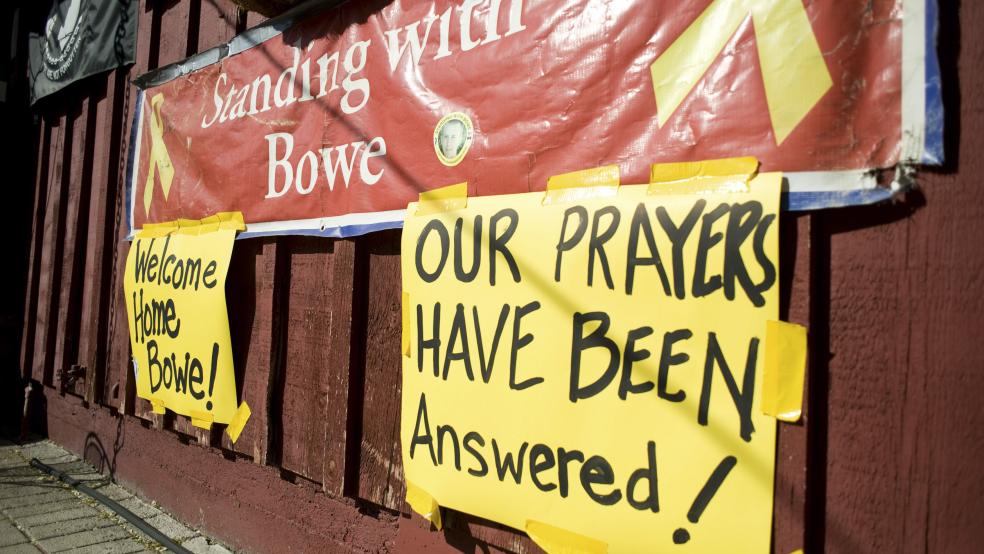The controversy surrounding the circumstances under which Bowe Bergdahl was captured by the Taliban continue to rage on. Lost in that debate is the fact that, for the first time, the White House successfully negotiated with the Taliban.
Republicans are dismissing these talks as negotiations with terrorists. Some conservative media outlets are accusing Obama of treason for allowing five members of the Taliban to be exchanged for Bergdahl, who may have willfully deserted his base.
Related: The Bergdahl Affair Feeds Right into 2016
Sen. Ted Cruz (R-TX) has been one of the more vocal critics of the president. He told Fox News that the terms of the Bergdahl deal amount to a significant change in U.S. policy toward terrorists.
“Ambassador Rice basically said to you, ‘Yes, U.S. policy has changed. Now we make deals with terrorists,’" Cruz said, referring to comments made by National Security Adviser Susan Rice. “The reason why the U.S. has had the policy for decades of not negotiating with terrorists is because once you start doing it, every other terrorist has an incentive to capture more soldiers."
Cruz’s condemnation of the deal is mild compared to that of former Florida Congressman Allen West (R). In an op-ed published on The Washington Post’s website Wednesday, he called for the president to be impeached.
“Ladies and gentlemen, I submit that Barack Hussein Obama’s unilateral negotiations with terrorists and the ensuing release of their key leadership without consult — mandated by law — with the U.S. Congress represents high crimes and misdemeanors, an impeachable offense.”
Related: Did the U.S. Trade 5 Taliban Terrorists for an Army Deserter?
Complicating the controversy surrounding the president’s prisoner exchange deal are the uncertain circumstances of Bergdahl’s disappearance from an Army base in a dangerous region of eastern Afghanistan. His fellow soldiers claim that he deserted his post; a note he left seems to indicate that he did, but the Pentagon has yet to confirm it. It’s also unclear how many soldiers died in the search for Bergdahl; some say two, while others say 8.
Among of all of this are four underlying realities about the deal, some of which have important ramification for the future of Afghanistan. They are:
1. For the first time, Obama successfully reached a deal with the Taliban. Right now, the Taliban is a loosely affiliated band of tribal groups operating in the lawless areas on Afghanistan and Pakistan’s border. Getting them to agree to anything is a tall order.
Their agreement is quite important for the future of Afghanistan. The group can create havoc if it does not agree to acknowledge the legitimacy of the outcome of the ongoing Afghan presidential elections. As Defense Secretary Chuck Hagel pointed out earlier this week, these successful negations could lead to others down the line.
Related: Karzai Snubs U.S. Negotiations on His Way to Oblivion
“It could, it might and we hope it will present an opening,” Hagel said last Sunday. “So maybe this will be a new opening that can produce an agreement.”
2. This isn’t the first time the United States has negotiated with the Taliban. The Taliban have been involved in peace negotiations with the United States and the Afghan government for years. Afghan President Hamid Karzai has even accused the United States of colluding with the Taliban. If Obama’s critics are right, then the United States has been negotiating with terrorists for years.
3. This decision was Obama’s alone. Obama’s decision to make the Bergdahl deal is a strong rebuke of his critics who say he lacks a backbone in foreign policy. There was plenty of dissent from within his administration, including from former Secretary of State Hillary Clinton, who was reportedly “very skeptical” of the deal.
4. This isn’t the first time the United States has negotiated with terrorist groups. In 1979, Jimmy Carter negotiated with Iranian extremists in an attempt to free American hostages there. Ronald Reagan’s administration was responsible for the weapons for prisoner sway that became known as the Iran Contra scandal. Bill Clinton negotiated with the Taliban in at attempt to get them to turn over Osama bin Laden and other al Qaeda leaders. The talks to release Bergdahl follow in this tradition.
Top Reads from The Fiscal Times:





